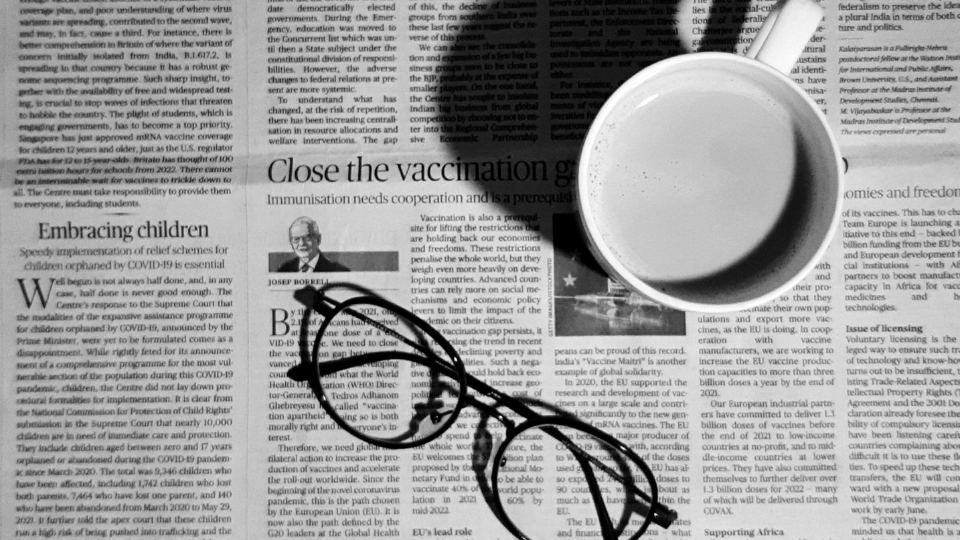Importance of Fact-Checking in Journalism
In today’s fast-paced digital age, where information is readily accessible and news spreads like wildfire, the role of journalism in delivering accurate and reliable information has become more crucial than ever. Journalists are the gatekeepers of truth, and it is their responsibility to provide the public with verified and fact-checked news stories.
What is Fact-Checking in Journalism?
Fact-checking is the process of verifying the accuracy and authenticity of claims made in news articles, interviews, or any other form of journalistic content. It involves thorough research, investigation, and cross-referencing of sources to ensure that the information presented is reliable and free from bias. By fact-checking their stories, journalists not only protect their own credibility but also maintain the trust of their audience.
The Role of Fact-Checking in Combating Misinformation
One of the primary reasons why fact-checking is crucial in journalism is the prevalence of misinformation and fake news in today’s media landscape. With the rise of social media platforms and the ease of sharing information, false narratives and misleading stories can quickly gain traction and spread widely. Fact-checking acts as a countermeasure to combat this issue by debunking false claims and providing accurate information to the public.
Fact-Checking as a Safeguard
Furthermore, fact-checking serves as a safeguard against errors and inaccuracies that may occur unintentionally during the reporting process. Journalists are humans, and despite their best efforts, mistakes can happen. By implementing rigorous fact-checking procedures, news organizations can minimize the risk of publishing erroneous information and maintain their credibility as reliable sources of news.
Holding Public Figures Accountable
Fact-checking also plays a crucial role in holding public figures and institutions accountable. Journalists have the responsibility to fact-check statements made by politicians, government officials, and other influential figures to ensure that they are not spreading misinformation or manipulating facts for their own agenda. By providing accurate information to the public, fact-checking contributes to a more informed society and helps citizens make informed decisions.
The Emergence of Fact-Checking Organizations and Initiatives
In recent years, the importance of fact-checking has been highlighted by the emergence of dedicated fact-checking organizations and initiatives. These organizations, such as PolitiFact, Snopes, and FactCheck.org, are committed to independently verifying the claims made in news stories and holding journalists and public figures accountable for their statements. Their work has become invaluable in the fight against misinformation and the promotion of accurate reporting.
Fact-Checking Techniques
Journalists can employ various fact-checking techniques to ensure the accuracy of their stories. One of the primary methods is cross-referencing information from multiple sources. By consulting different sources and verifying the information from various angles, journalists can confirm the accuracy of their claims. Additionally, establishing direct contact with primary sources and conducting interviews can provide firsthand information and reduce the chances of relying on secondhand or unverified information.
The Role of Technology in Fact-Checking
In recent years, technology has also played a significant role in fact-checking. Automated fact-checking tools and algorithms have been developed to assist journalists in identifying false information quickly. These tools use artificial intelligence and machine learning techniques to analyze large amounts of data and detect patterns that may indicate misinformation. While technology can be a valuable aid, it is important for journalists to exercise critical thinking and not solely rely on automated tools.
The Essence of Fact-Checking in Journalism
Fact-checking is an essential practice in journalism to ensure accuracy, credibility, and accountability. In an era where misinformation spreads rapidly, journalists play a crucial role in verifying the claims made by public figures and providing accurate information to the public. By implementing rigorous fact-checking procedures and utilizing various techniques, journalists can uphold the integrity of their profession and deliver reliable news stories that inform and empower the audience.
Key Takeaways
- Fact-checking is crucial in journalism to combat the prevalence of misinformation and fake news.
- It safeguards against errors and holds public figures accountable for their statements.
- Dedicated fact-checking organizations and initiatives play a vital role in the fight against misinformation.
- Journalists can employ techniques like cross-referencing and direct contact with primary sources to ensure accuracy.
- Technology, such as automated fact-checking tools, can assist journalists but critical thinking remains essential.
To further enhance your skills in modern journalism and fact-checking, consider enrolling in the “NYU | Modern Journalism” online course and certificate program offered by Yellowbrick. This comprehensive program will provide you with valuable insights and practical knowledge to excel in the field of journalism while focusing on the importance of accuracy and fact-checking. Don’t miss the opportunity to sharpen your journalism skills and make a positive impact in the world of media.






